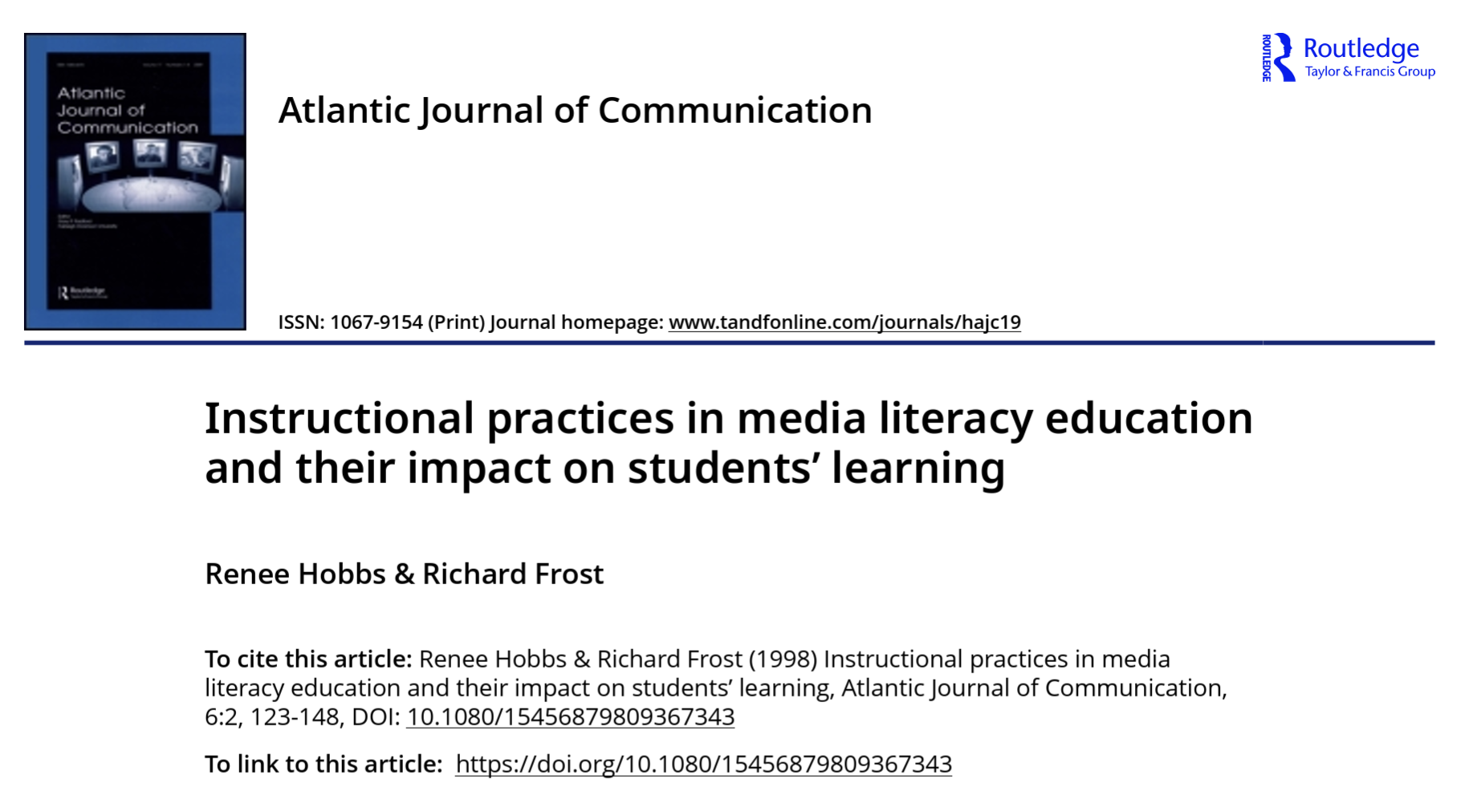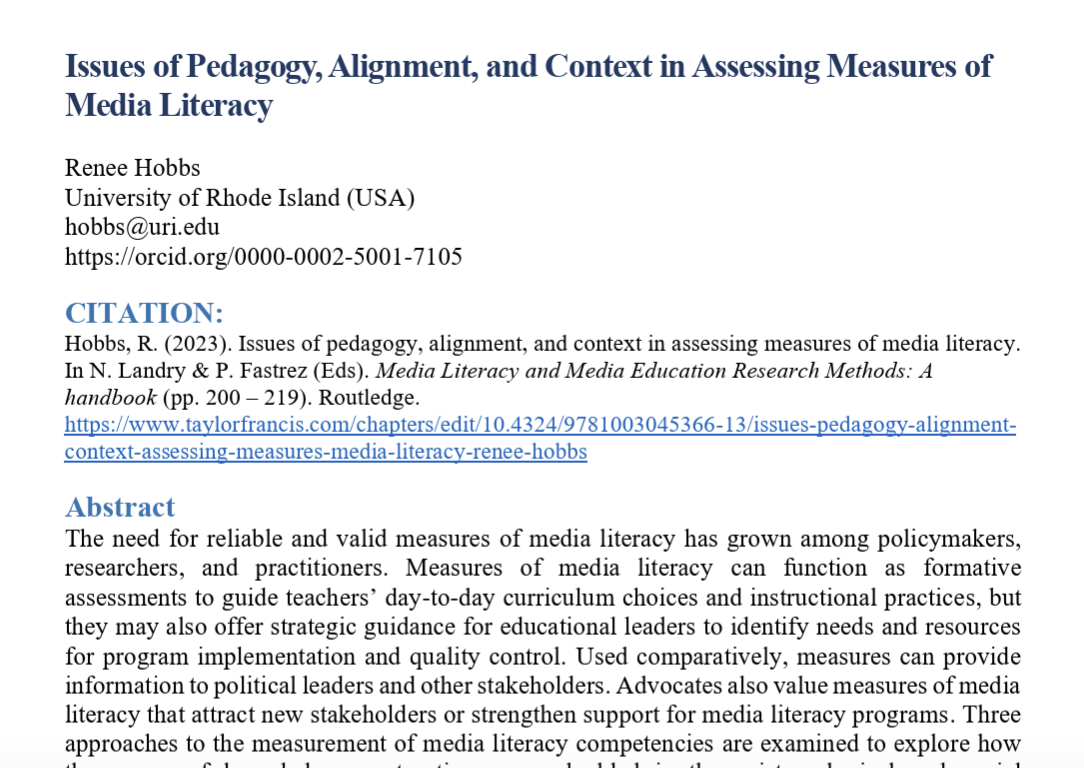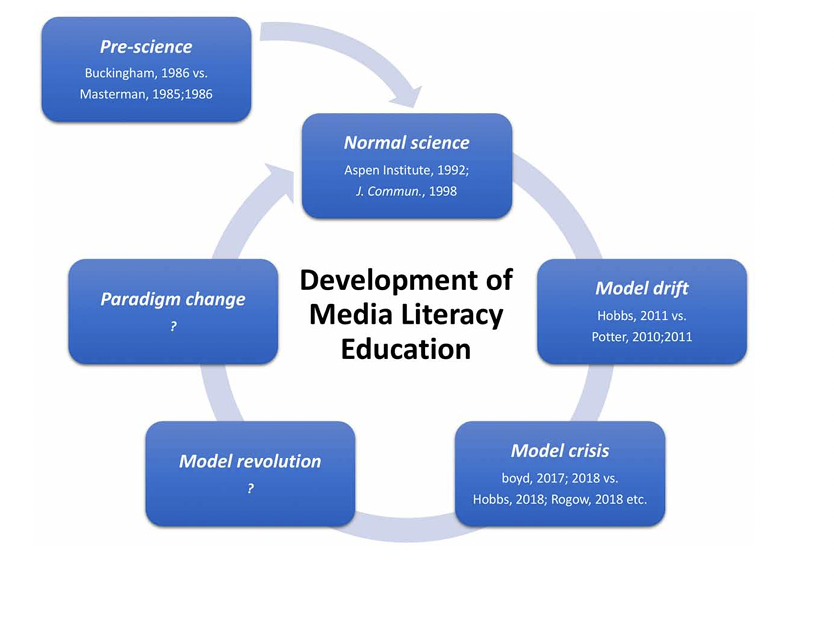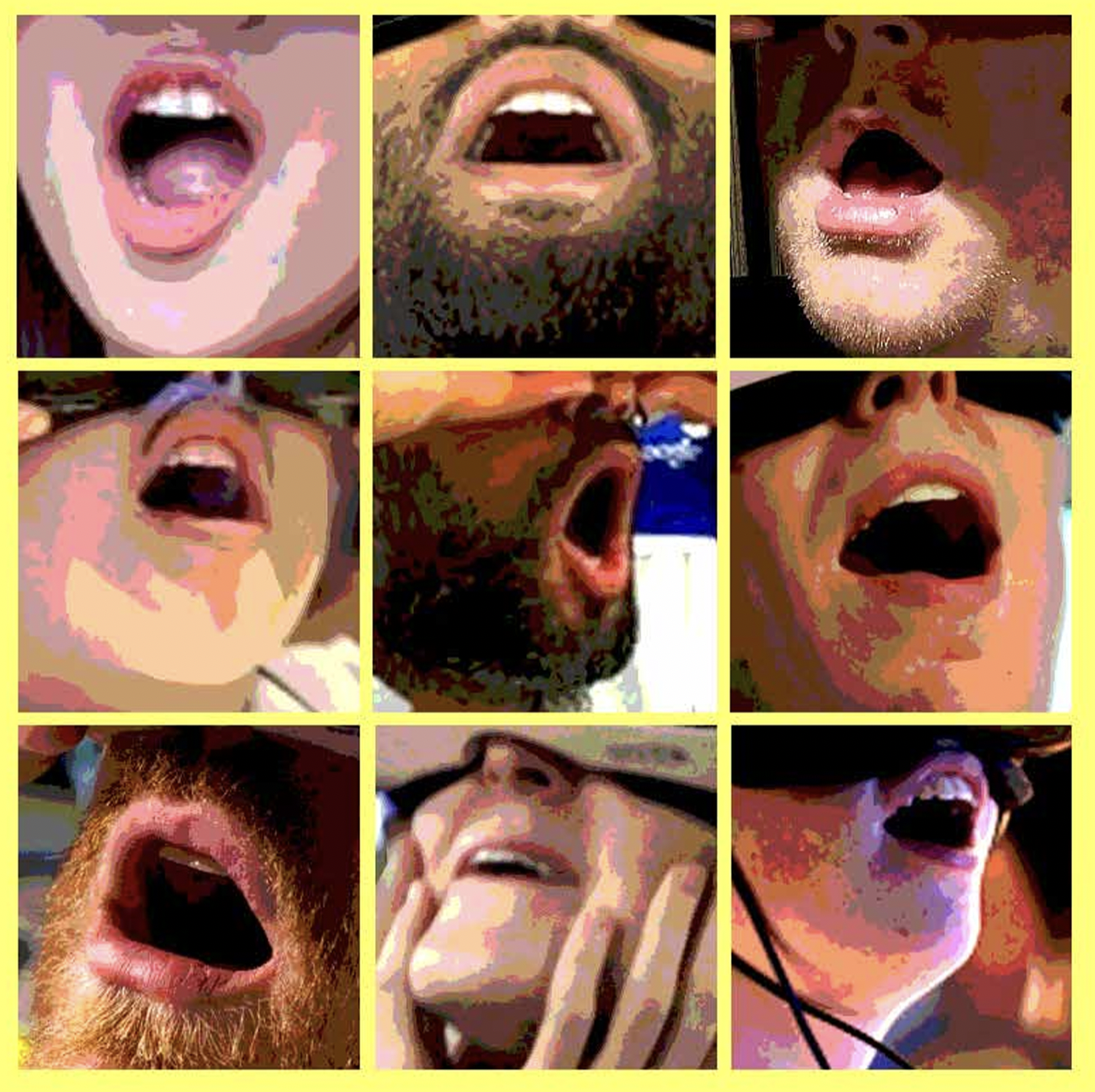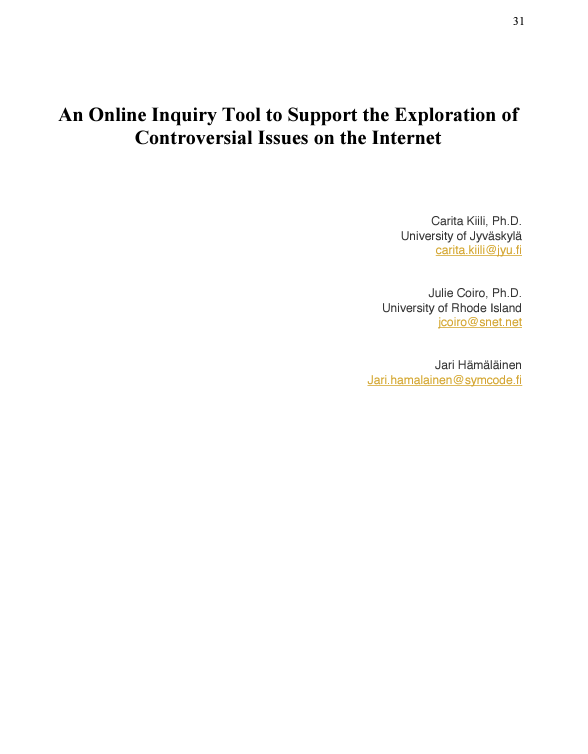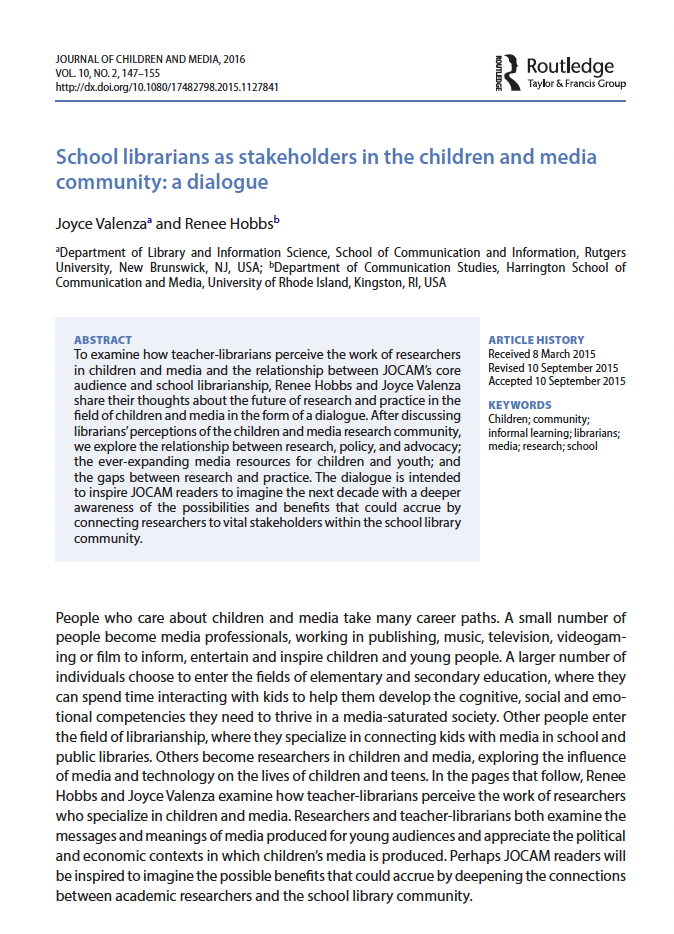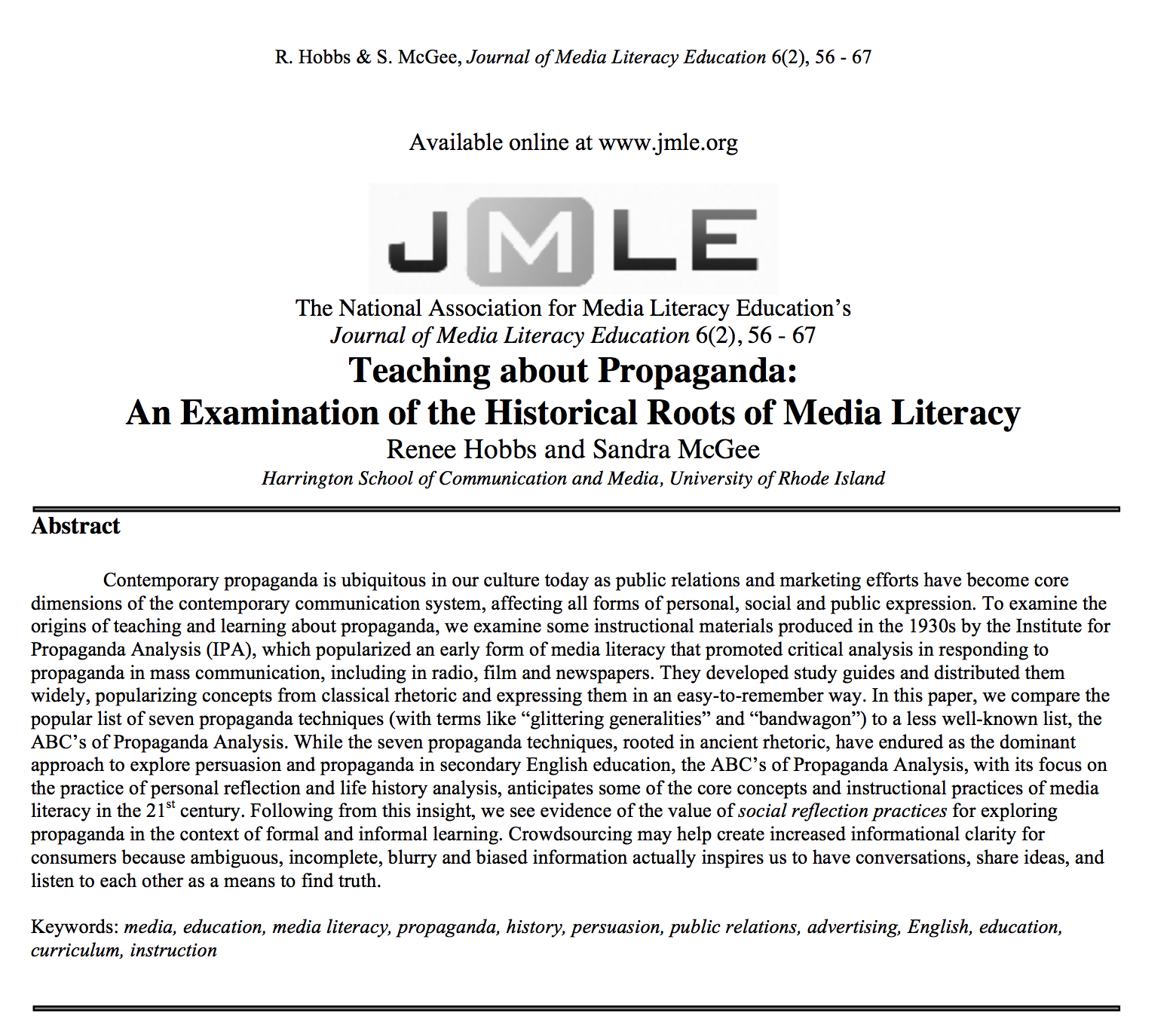- Home
- Technology & Society

Thrive 2026: Why Media Literacy Matters for Civic Engagement & Democracy
Thrive 2026 is the essential virtual summit empowering cross-sector leaders to forge practical solutions for democratic resilience. Join us to gain actionable skills, build global partnerships, and drive real-world impact in strengthening democracy.Thrive 2026 takes place virtually over the course of Wednesday, March 4th and Thursday, March 5th. For more information,…
Read More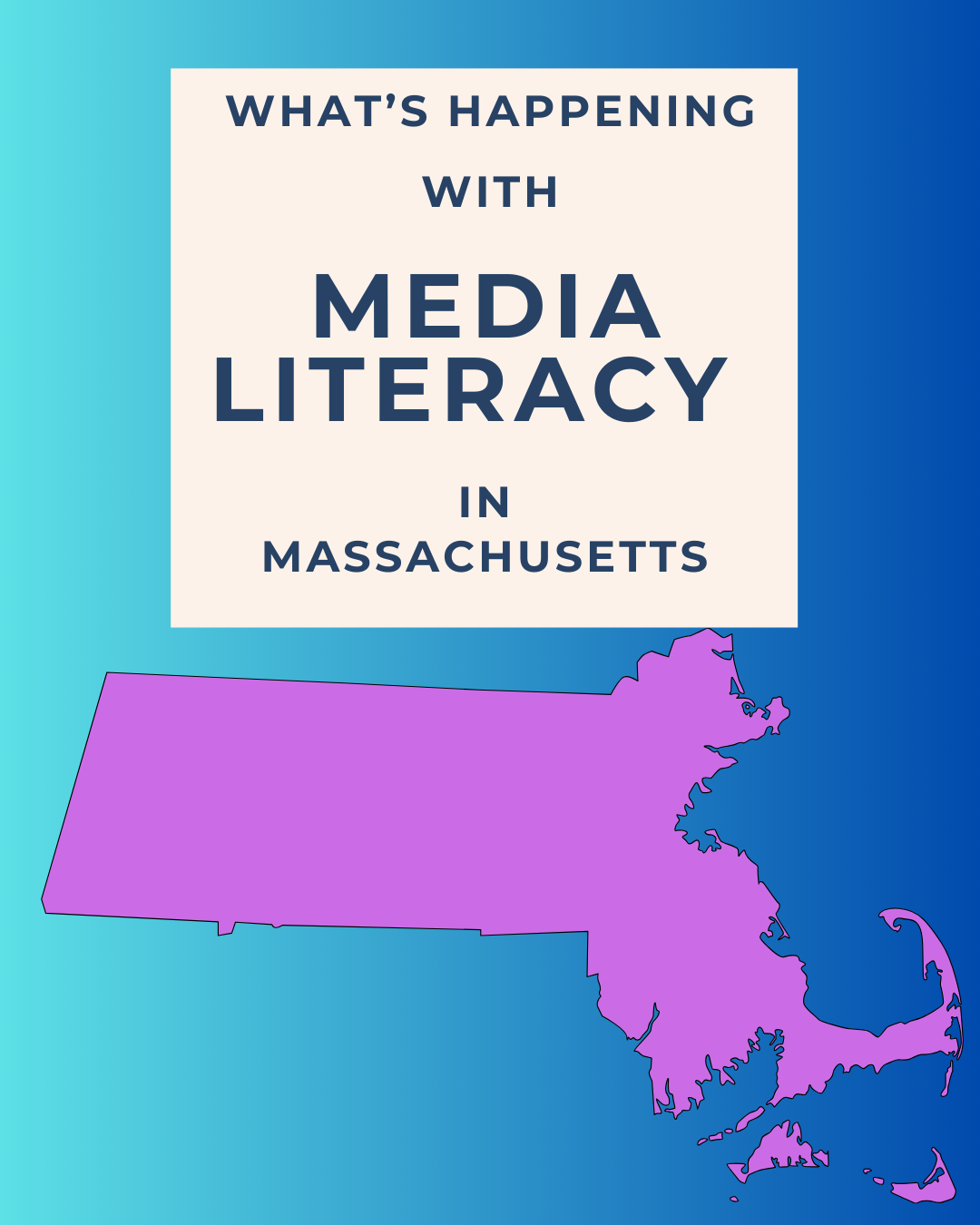
What's Happening In Massachusetts?
JOIN US!Meet some of the Massachusetts school leaders, educators, librarians, and tech specialists who are implementing media literacy in schools! DATE: Monday, March 30, 2026TIME: 2 - 3 PM LOCATION: Online. Click here to register What's happening with media literacy in Massachusetts? Confirmed PresentersKyra Brissette…
Read More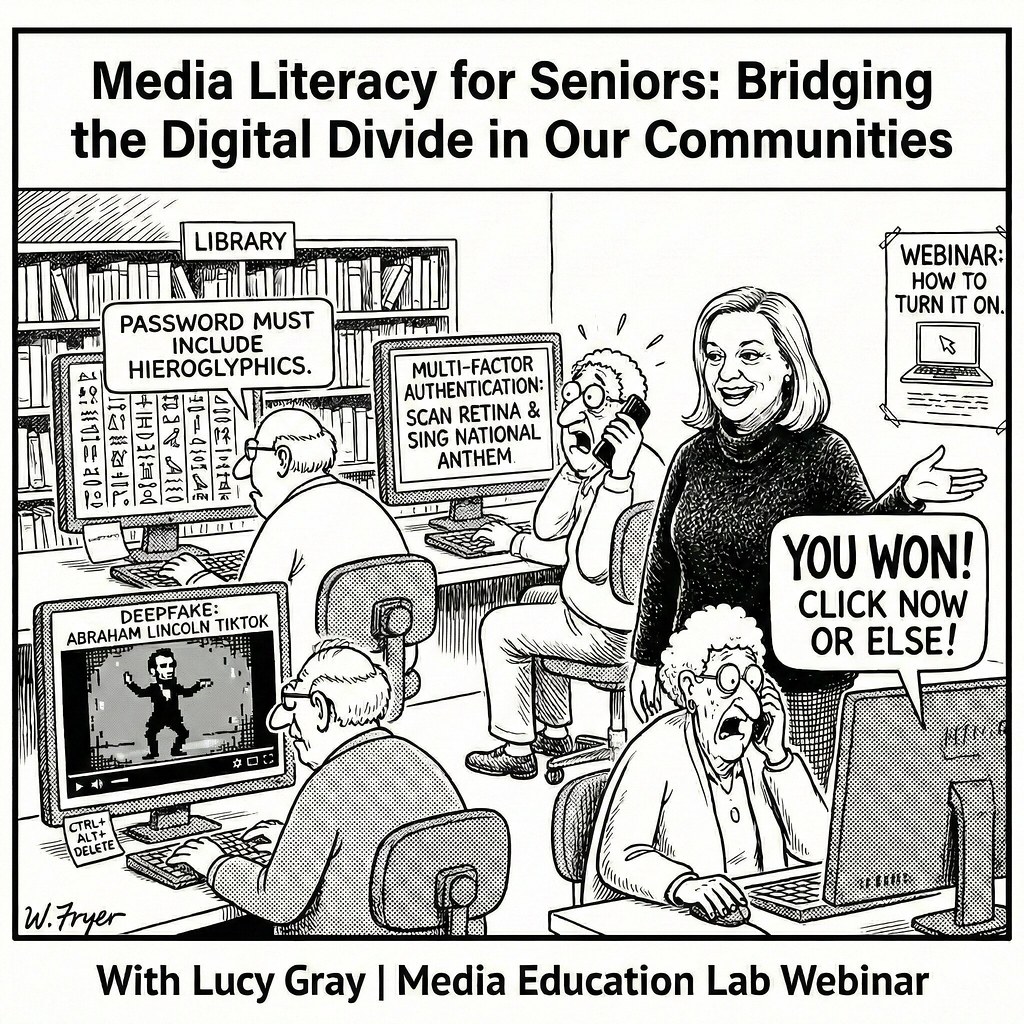
Media Literacy for Seniors
Technology companies rarely design with older adults in mind, yet seniors face increasingly high-stakes digital challenges—from navigating confusing interfaces and password resets to identifying AI-generated deepfakes and avoiding sophisticated scams. Join Lucy Gray, an educational technology veteran who now works part-time at a public library…
Read More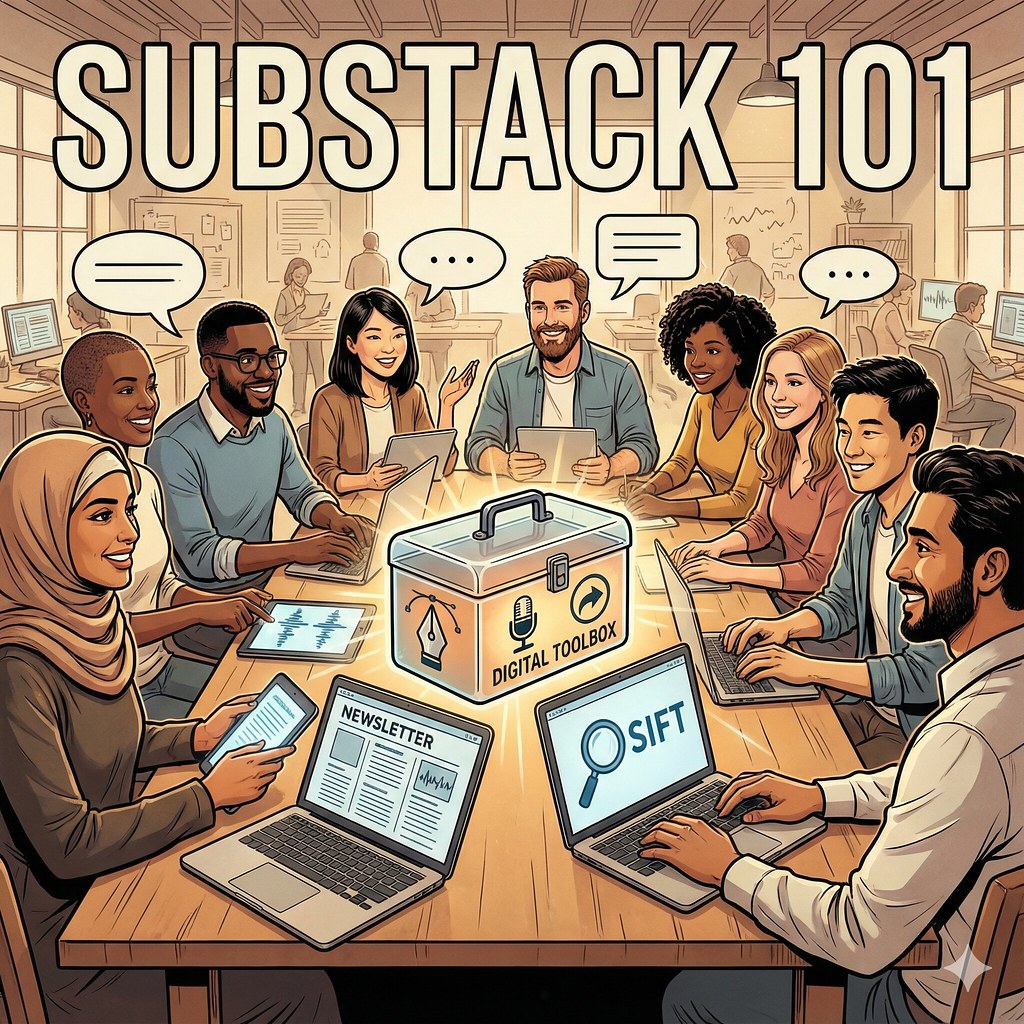
Substack 101
As algorithmic social media feeds become increasingly cluttered with noise and polarization, a growing number of educators and citizens are turning to the "newsletter economy" to reclaim their digital attention. Substack has emerged as a powerful tool in this landscape, offering a space where we can move away from being passive consumers and toward becoming…
Read More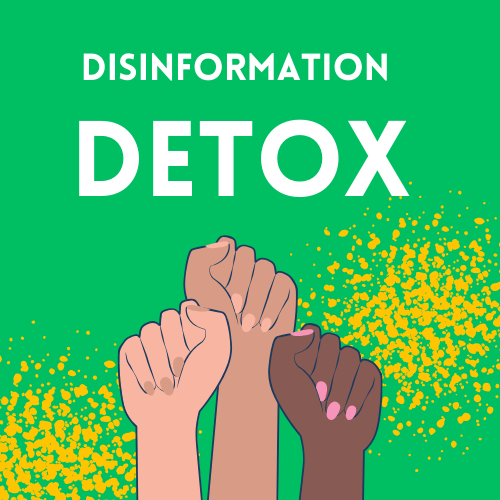
Disinformation Detox
DISINFORMATION DETOX: Teaching Disinformation from Inside the Information Ecosystem DATE: Thursday, January 29, 2026TIME: 12 - 1 PM ESTLOCATION: Online. Click here to registerMedia literacy activities often position students as detached outsiders applying fact-checking skills to help them spot dis- and…
Read More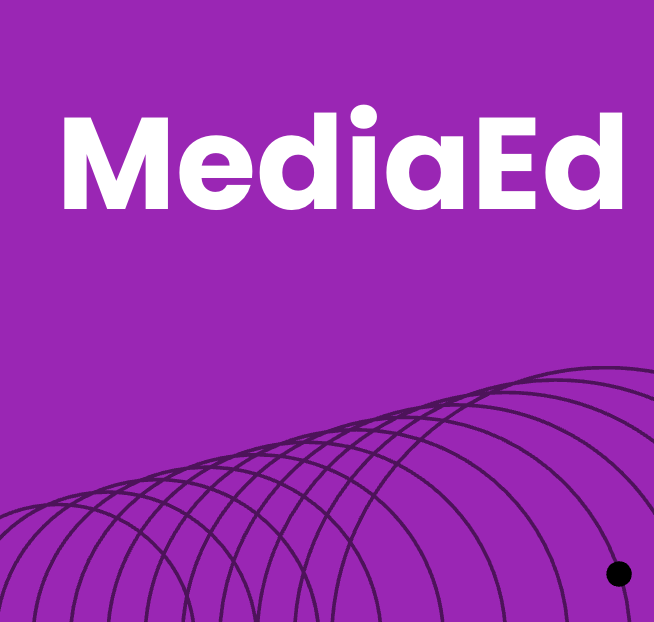
MEL Monthly Meeting
These gatherings are designed exclusively for the 71 people who are currently affiliated with the Lab as core team members, fellows, affiliated faculty, graduate students, or project collaborators.As our work continues to grow in reach, scale, and impact, these monthly meetings give us space to stay connected, share updates, coordinate…
Read More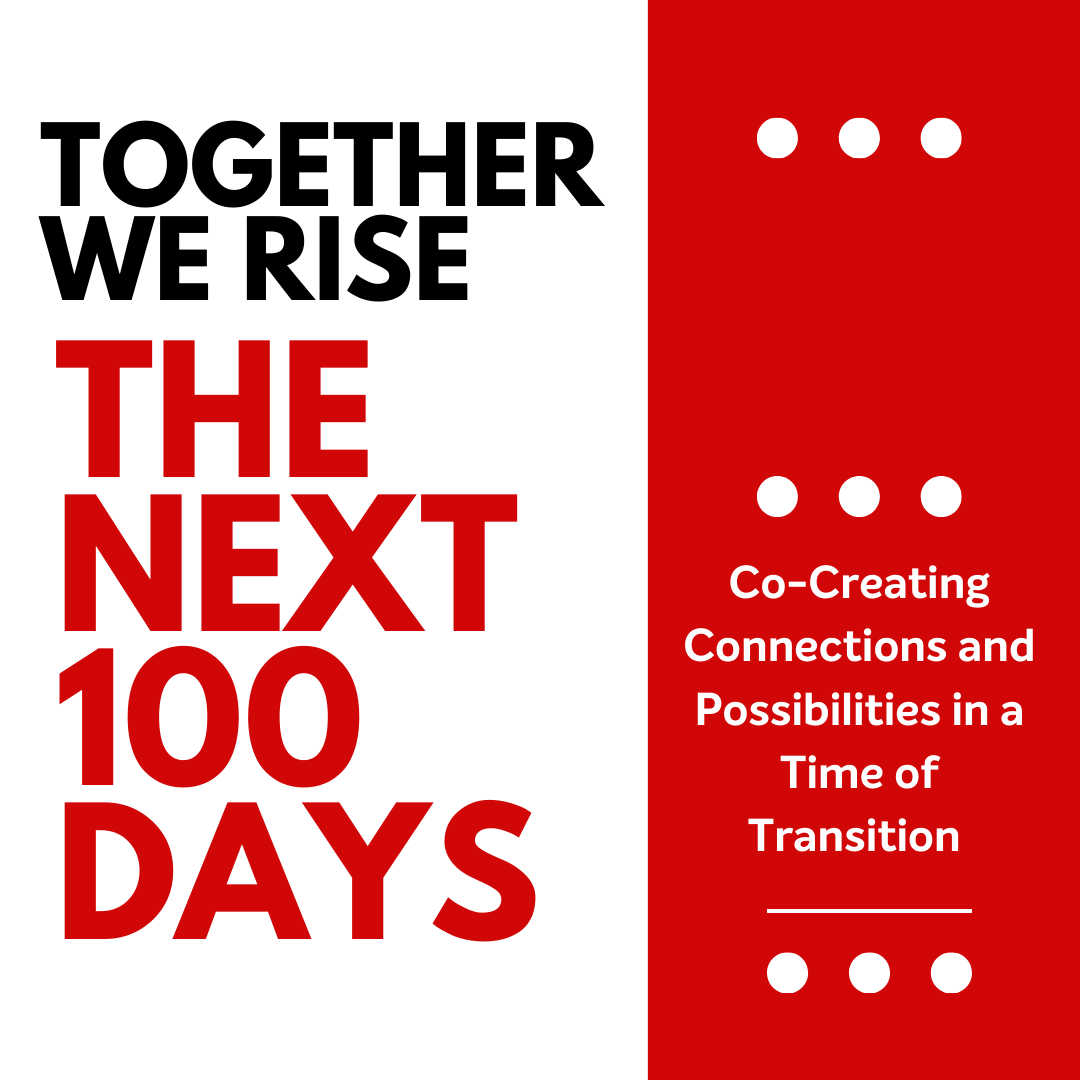
Together We Rise: December 2025
Dear friends of the Media Education Lab community,Like many of you, we are still processing the school shooting that took place at Brown University last week and the days of fear and anxiety that followed. Many members of the MEL community, including myself, live, work, teach, and study in and around Providence, Rhode Island. Many of you reached out to us in the past days, appreciating the…
Read More
Gamifying The Feed
Social media algorithms are often invisible to students, but "The Feed" makes them tangible. In this competitive card game, players stop being passive scrollers and start acting as the manipulators - embodying trolls, influencers, and content farms to "win" in our attention economy. By gamifying the spread of information, students actively model the tactics that drive viral content, transforming…
Read More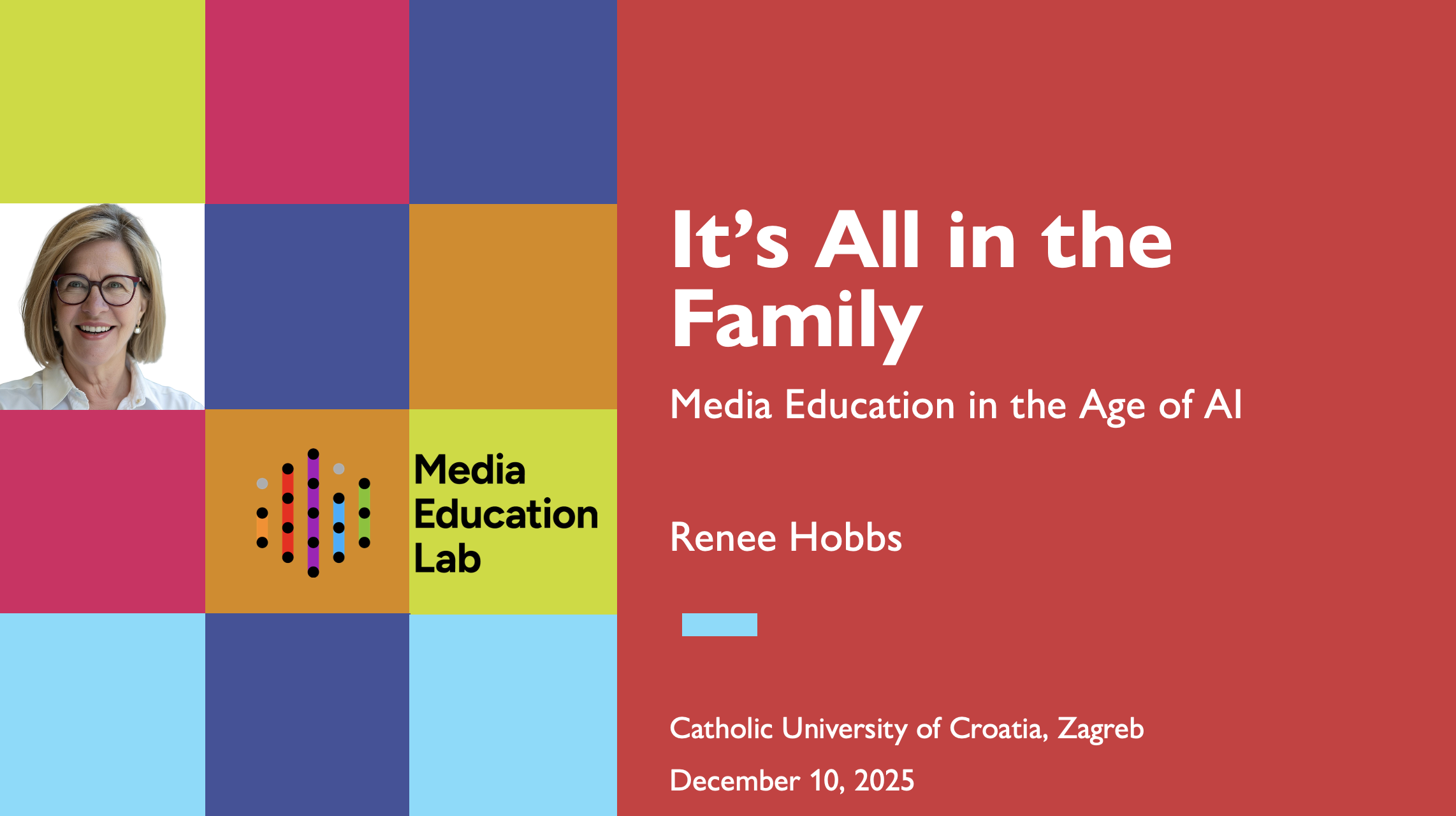
Media & Family Conference
The Catholic University of Croatia (CUC) hosts the "Media and Family in the Age of Artificial Intelligence" conference on December 10, 2025, focusing on media's impact on family life, alongside broader communication conferences addressing disinformation, with participation from international experts, promoting media literacy and digital citizenship, reflecting CUC's engagement in contemporary…
Read More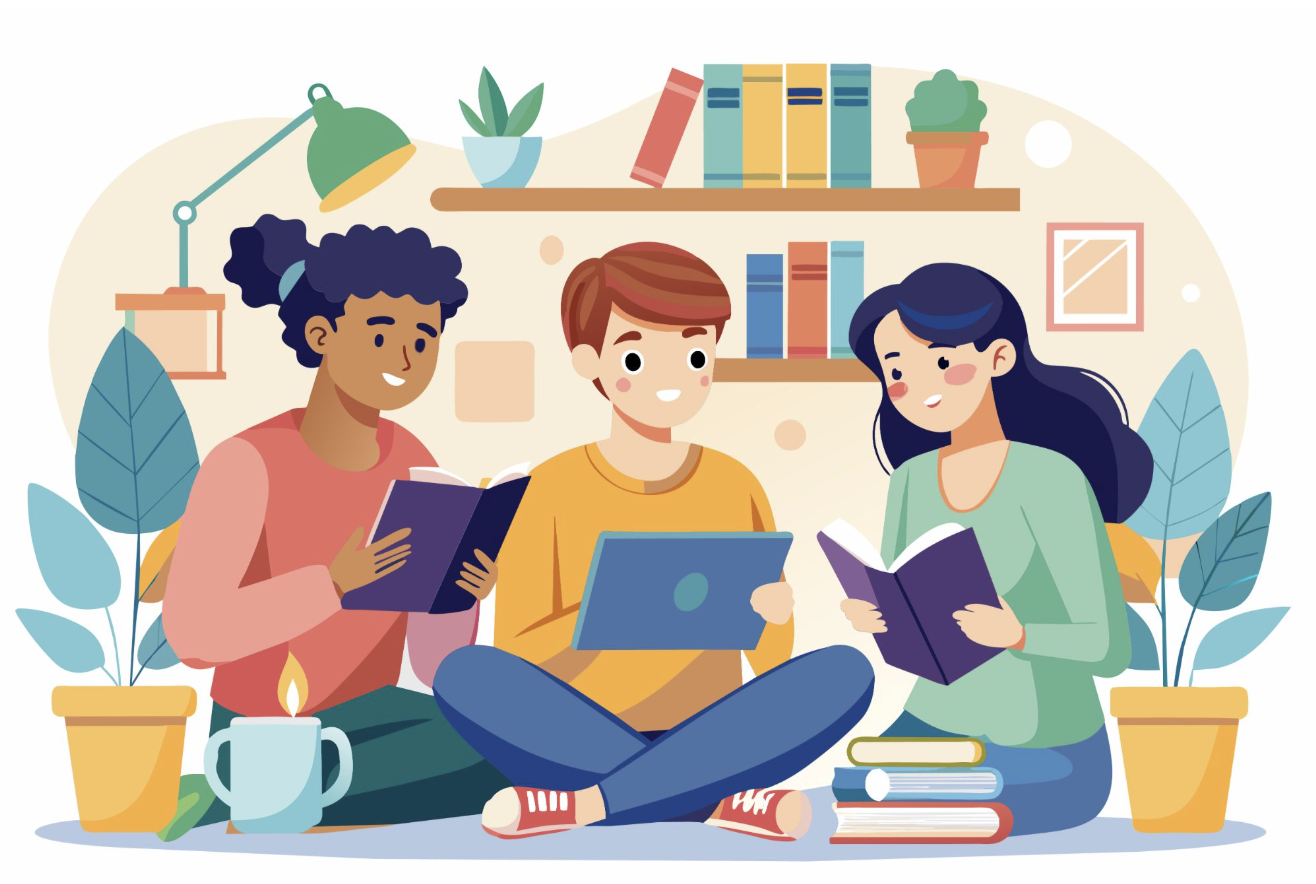
Media Mindfulness
Media Mindfulness: Building Media Literacy Through Meaningful Discussion Discover how media mindfulness can be a powerful tool to help people become savvy news consumers by engaging in thoughtful discussions about local and current issues. Through guided reflection, students consider which news stories are meaningful to them and how they make them feel. This approach promotes respectful dialogue…
Read More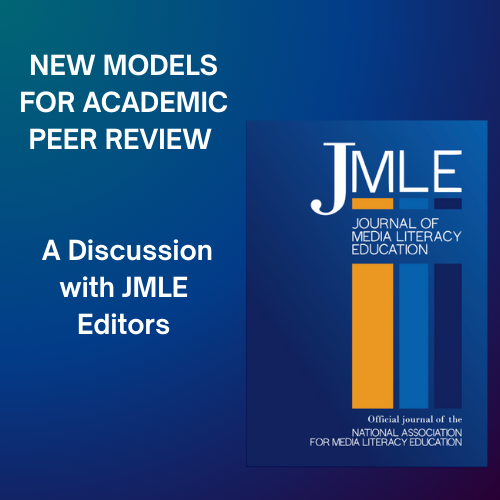
New Models for Academic Peer Review: A JMLE Discussion
What are some alternatives to the double-blind peer review system of academic journals? Not surprisingly, there are quite a few! Each model is trying to fix different weaknesses of traditional double-blind peer review (bias, slowness, opacity, gatekeeping). Join JMLE Editors for an informal conversation to learn more about the options available as we consider a path forward. DATE: Thursday,…
Read More
Holiday Tech Gadget Wish Lists
As the holiday season ramps up, our feeds can fill with new tech gadgets: AI wearables, gaming gear, smart speakers, tablets, creator tools, and more. But which gadgets actually spark curiosity, creativity, and connection... and which mostly harvest data, drain our attention, or end up in a drawer by February?Join the MediaEd Club of the Media Education Lab for a playful and practical December…
Read More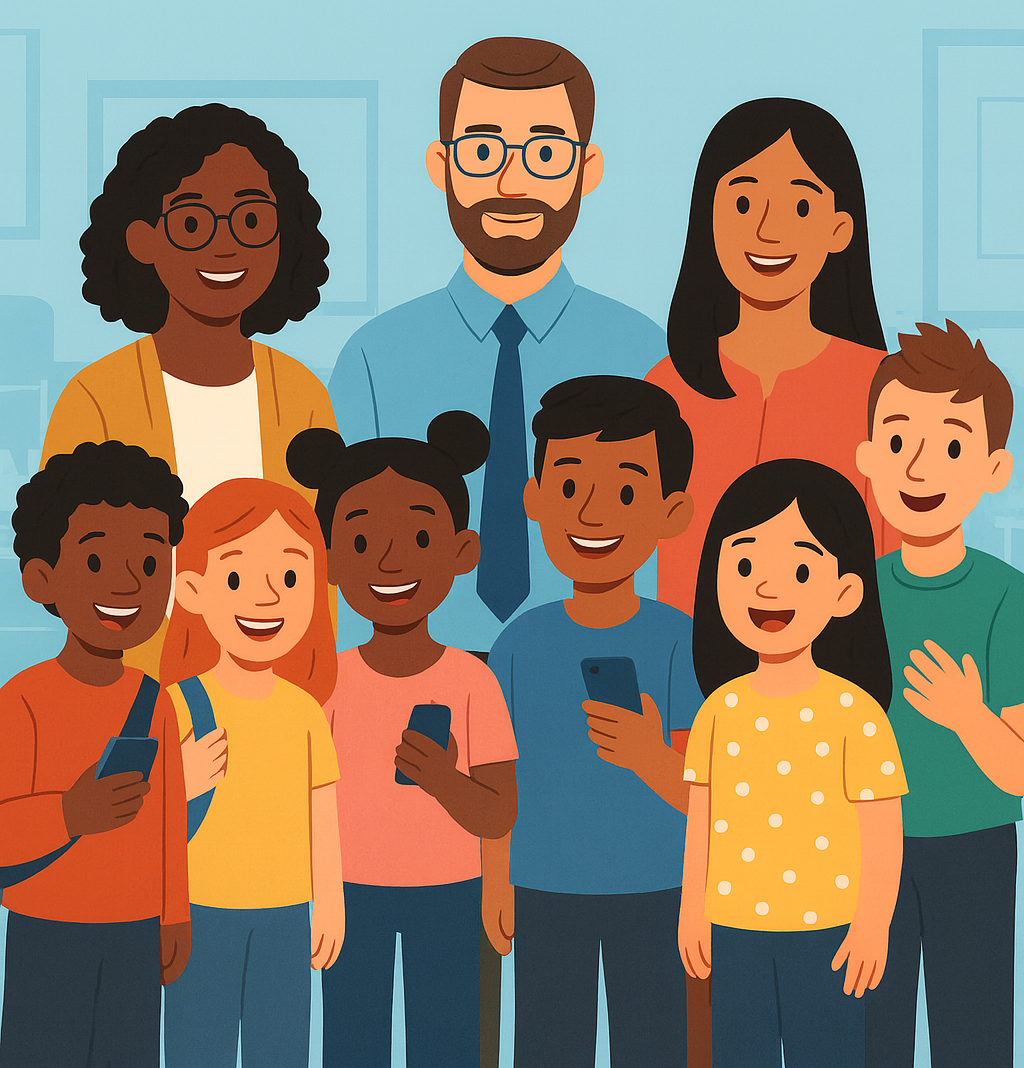
Cell Phones, Social Media, and Student Well-Being
Cell phone and social media use have shifted rapidly in the last few years, raising urgent questions about school cell-phone bans, cyberbullying, psychological impacts, and academic performance.This webinar reframes the conversation through a digital empathy lens, blending media literacy practices with trauma-informed approaches that support student wellness and mental well-being. We’ll explore…
Read More
Vibe Coding with AI
As AI tools make it possible to create apps, games, and interactive experiences without ever writing a line of code, a new practice called “vibe coding” is raising big questions for educators, technologists, and learners alike. Popularized by New York Times tech columnist Kevin Roose, vibe coding invites anyone with an idea to build software by describing it in plain language, but it also stirs…
Read More
Favorite Podcast Share Out
What are your favorite podcasts and who are your favorite podcasters? How do you share these with others? Finding, sharing, and filtering high quality podcasts is a valuable activity, especially when we engage in this process with others who share common interests like “media literacy.” But it can also be inspiring and invigorating to share favorite podcasts about our personal hobbies and niche…
Read More
The Cure That Endures
Renee Hobbs addresses the South American Business Forum in Buenos Aires, Argentina In today’s media-saturated world, it’s easy to feel overwhelmed, misled, or emotionally drained. With AI-generated content, influencer marketing, and algorithmic persuasion shaping our daily experiences, many of us struggle with confusion, cynicism, and disconnection. In this compelling keynote, media literacy…
Read More
Searching With AI
With AI chatbots like ChatGPT, Gemini, and Claude reshaping how people search for information, traditional search engines like Google face new competition—and new scrutiny. But as more users turn to generative AI for answers, critical questions arise: How reliable are these AI "searches"? What happens when algorithms hallucinate facts, reflect hidden biases, or omit information entirely? Join the…
Read More
Privacy, Power, and Platforms
As surveillance technologies expand and authoritarian impulses rise both in the U.S. and globally, digital privacy is no longer a niche concern—it’s an urgent classroom conversation. Join us for this timely Media Education Lab webinar where we’ll unpack the forces shaping our digital lives and explore how educators can help students understand, critique, and protect their privacy. Together, we’ll…
Read More
Beyond the Algorithmic Feed
Social media is being rebuilt from the ground up. Instead of reinforcing echo chambers through centralized algorithms, emerging federated platforms like Bluesky aim to create more user-centric, customizable, and humane spaces for online interaction. Join us for "Beyond the Algorithmic Feed," a MediaEd Club conversation exploring the architecture and ethics of decentralized social networks. Before…
Read More
Civic Engagement and the Impact of Artificial Intelligence
The Civic Engagement lecture series is an ongoing series with an overarching goal to highlight individuals who use their time and talent to create space for others to be civically engaged in unique ways. The April panel, Civic Engagement and the Impact of Artificial Intelligence, will focus on the opportunities and challenges of generative AI as a tool for public information. DATE: Monday, April…
Read More
From Stone Age to AI
From the first campfire stories to the algorithms shaping our digital lives, information networks have always played a central role in how we understand the world and each other. In "Nexus: A Brief History of Information Networks from the Stone Age to AI," Yuval Noah Harari explores how networks of…
Read More
Media Literacy: Critical Thinking for an AI World
MEDIA LITERACY Critical Thinking for an AI WorldStarting April 12, 2025 Work with a team of Palestinian and American educators to create a media literacy program for Palestinian young adults to build resilience and critical thinking skills WHY IT MATTERSIn today's digital age, navigating the complexities of media is crucial for everyone. Media literacy plays a crucial role in building resilience…
Read More
Bioneers 2025
Misinformation, “Truthiness,” and Critical Thinking: Seeing Through the Madness by Enhancing Media Literacy for All One of the most disconcerting trends in modern political discourse is the increasing feeling that there is no “shared reality” between opposing sides on many issues. In a world facing so many wicked problems simultaneously, the growing inability to collectively discern fact from…
Read More
Free Speech in an Era of Digital Platforms
DATE: Wednesday, March 12, 2025 TIME: 10:00-11:00 AM ESTLOCATION: Online. Free …
Read More
Media Literacy is for Everyone
In response to the enthusiasm and excitement around our last event in October, we are excited to officially invite you back to Rhode Island PBS for the next event in the recurring series, “Media Literacy is for Everyone”. DATE: Tuesday, February 11 TIME: 5:00 - 7:00 PM ESTLOCATION: Rhode Island PBS, 50 Park Ln, Providence, RI We're dedicated to the process of building relationships, identifying…
Read More
Digital Authorship Graduate Course
Digital Authorship (EDC 534) is offered in the Spring 2026 semester by Professor Renee Hobbs. It is one of four required courses in the Graduate Certificate in Digital Literacy. The course is offered fully online in an asynchronous format for Anytime Learning. DEADLINE TO REGISTER IS JANUARY 20, 2026 ABOUT THE COURSE: The…
Read More
Book Party, Media Literacy in Action, 2nd Edition
Join Renee Hobbs for a book party to celebrate the publication of Media Literacy in Action, 2nd edition!DATE: Wednesday, February 5, 2025TIME: 12 PM - 1 PM ESTLOCATION. Online. REGISTER HEREHelp students…
Read More
Together We Rise: The Next 100 Days
Together We Rise: The Next 100 Days Co-Creating Connections and Possibilities in a Time of Transition The program continues! Join us for reflection and fellowship. This weekly webinar addresses themes of social connection, political transition, stress reduction, and media literacy. Sessions include guest speakers, guided discussions, and mindfulness practices. We are co-constructing the support…
Read More
Participatory Storytelling and News
Participatory storytelling is reshaping news and public discourse, driving both polarization and civic engagement. Join us for “Participatory Storytelling and News” as we unpack insights from Kate Starbird’s research on misinformation and modern media ecosystems. Drawing on the Tech Policy Press December 2024 podcast interview with Starbird, this session explores how educators can better…
Read More
AI ChatBot Ethics
AI-powered chatbots are reshaping how we interact online, but they also raise pressing ethical and practical concerns—especially for parents and teachers. Join us for AI ChatBot Ethics as we examine how children and teens engage with these tools, from companionship to questionable information sources. Drawing on the BBC TechLife podcast “Dating a Chatbot” and recent high-profile stories, we’ll…
Read More
BlueSky Educational Networking
Thousands of educators are using the social media platform BlueSky to connect, share ideas, and collaborate. With so many social networking platforms now available, where should innovative teachers and educators connect? Especially since November 2024, one answer is BlueSky, thanks in part to the #EduSky…
Read More
Building Resilient Communities: Using Media Literacy to Fight Extremism, Hate and Violence
This session, part of UNESCO Global MIL Week and co-organised by the Media Learning Association and Media Education Lab, will be dedicated to exploring media literacy as a proactive tool for resisting harmful communication, preventing extremism, and fostering stronger,…
Read More
Digital Ubuntu/Empathy of Teenagers
In the third interactive session, co-hosts Aurra Kawanzaruwa and Yonty Friesem will share case studies of digital empathy/Ubunto with teenagers. Participants will discuss how can media education and digital citizenship across the globe support adolescent search for identity and human connections to society. What are the concepts of Ubuntu/Empathy when teens are engaged online? As teens get more…
Read More
Digital Ubuntu/Empathy of Children
In the second interactive session, co-hosts Aurra Kawanzaruwa and Yonty Friesem will share case studies of digital empathy/Ubunto with children. Participants will discuss how can media education and digital citizenship across the globe support children's rights and connections. What are the concepts of Ubuntu/Empathy when children are engaged online? As children get more and more surrounded by…
Read More
MediaEd Club: The Rise of Chicago's Queer Country Music Scene: ‘Country Music is the People’s Music’
In this session of the MediaEd Club, Shelby Hawkins will lead a conversation about building and finding community through public service, and how media can be used as a tool to bring people together. In this conversation, Shelby will delve into the media segment The Rise of Chicago's…
Read More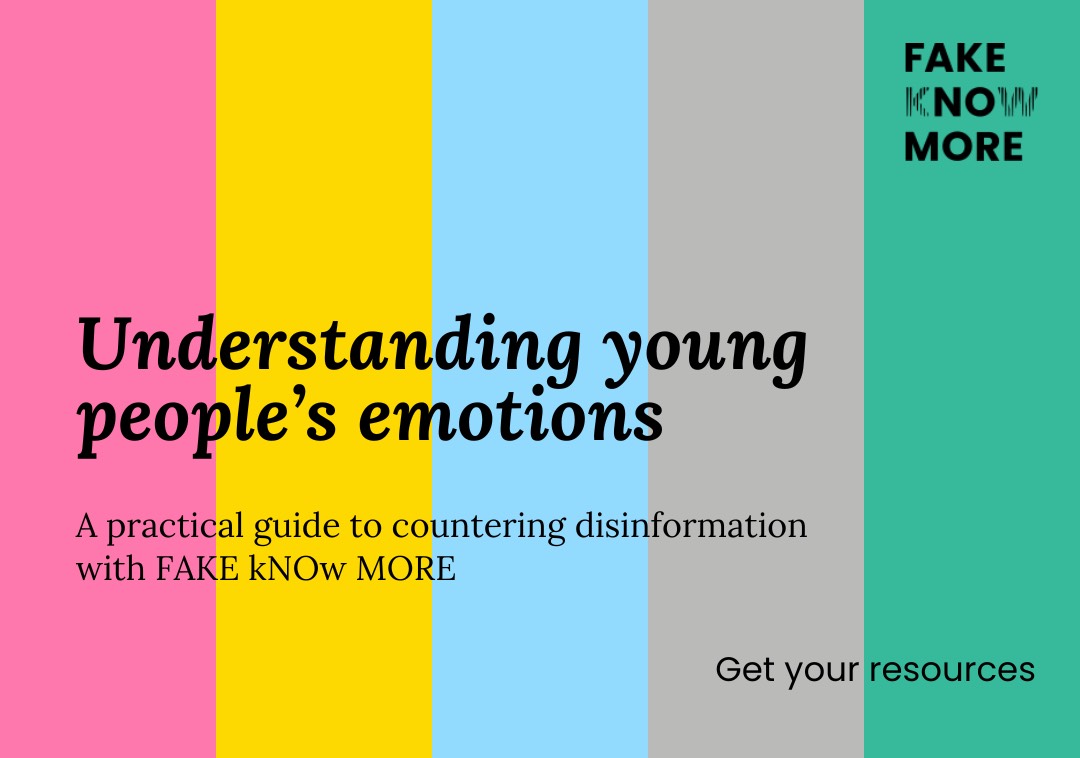
Understanding young people’s emotions: A practical guide to countering disinformation with FAKE kNOw MORE
Join a webinar with guest speaker Aleksandra Monkos, who will unveil the core concepts behind FAKE kNOw MORE – an international project aimed at empowering educators in formal and non-formal settings working with young people aged 10-15 from low socioeconomic backgrounds. Attendees will discover how to use tools like activity scenarios, videos, and the card game 'Octogram,' all designed to build…
Read More
Media Literacy Practices with Resilience
Join a session with guest speaker Maria Leonida, film director and media tutor, to discuss how various visual expression techniques can be used in media literacy education. Aiming at a variety of audiences, with higher or lower language skills, with a transgenerational and transdisciplinary attitude, Maria Leonida proposes deconstructing film and audiovisual language to self-contained units with…
Read More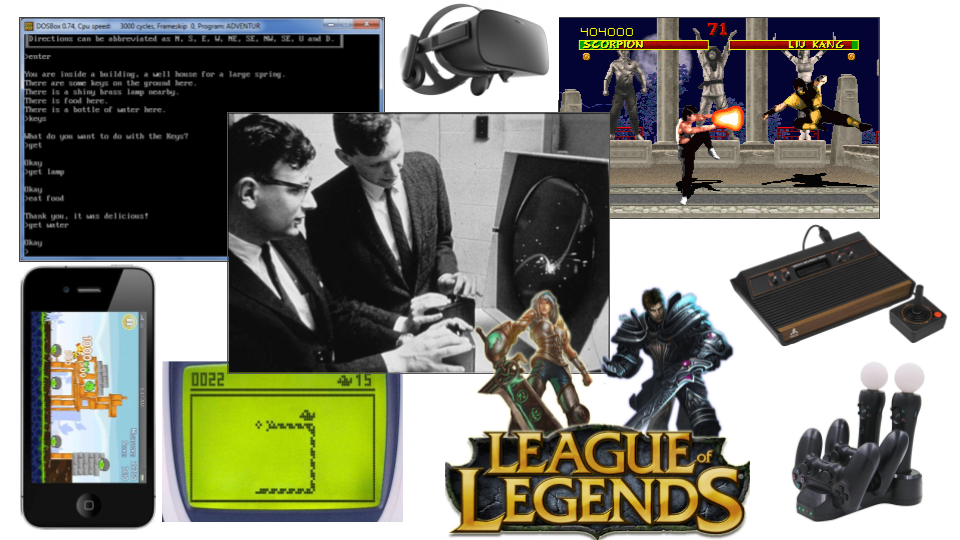
Media literacy, Moral Panic and Video Games - Learning Through Play
A cultural phenomenon, a 350 billion-dollar-a-year industry, a vehicle for developing participatory culture and core skills of the XXI century - media and digital literacy among them; a sport? Or the worst thing that's ever happened to the kids since TV? On July 23rd, we'll discuss the unique medium and experience of video games, learning through learning (and the difference between game-based…
Read More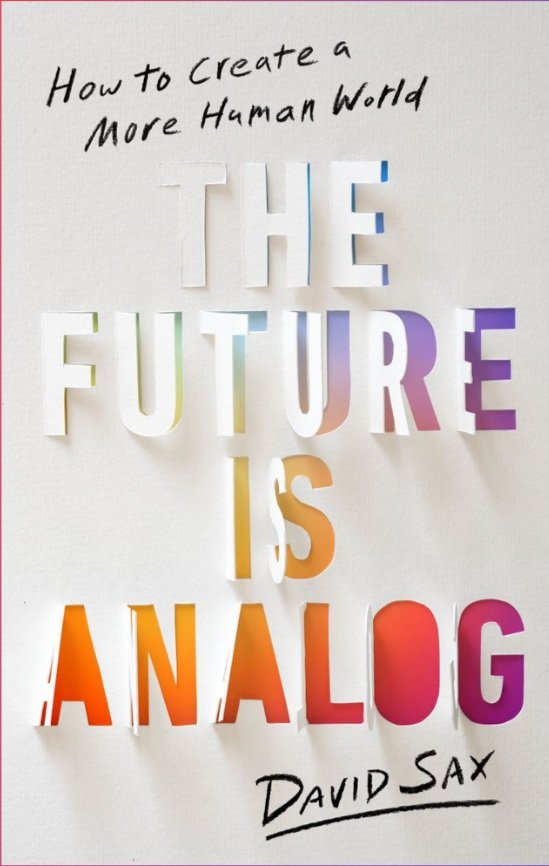
MediaEd Club: The Future is Analog
In this session, Francia Garcia Hernandez will guide a discussion on the future of technology based on the thought-provoking book "The Future is Analog" by David Sax.Amid the increasing use of AI and predictions about the digital future, this book offers some lessons drawn from the COVID-19 pandemic that can guide individuals in using…
Read More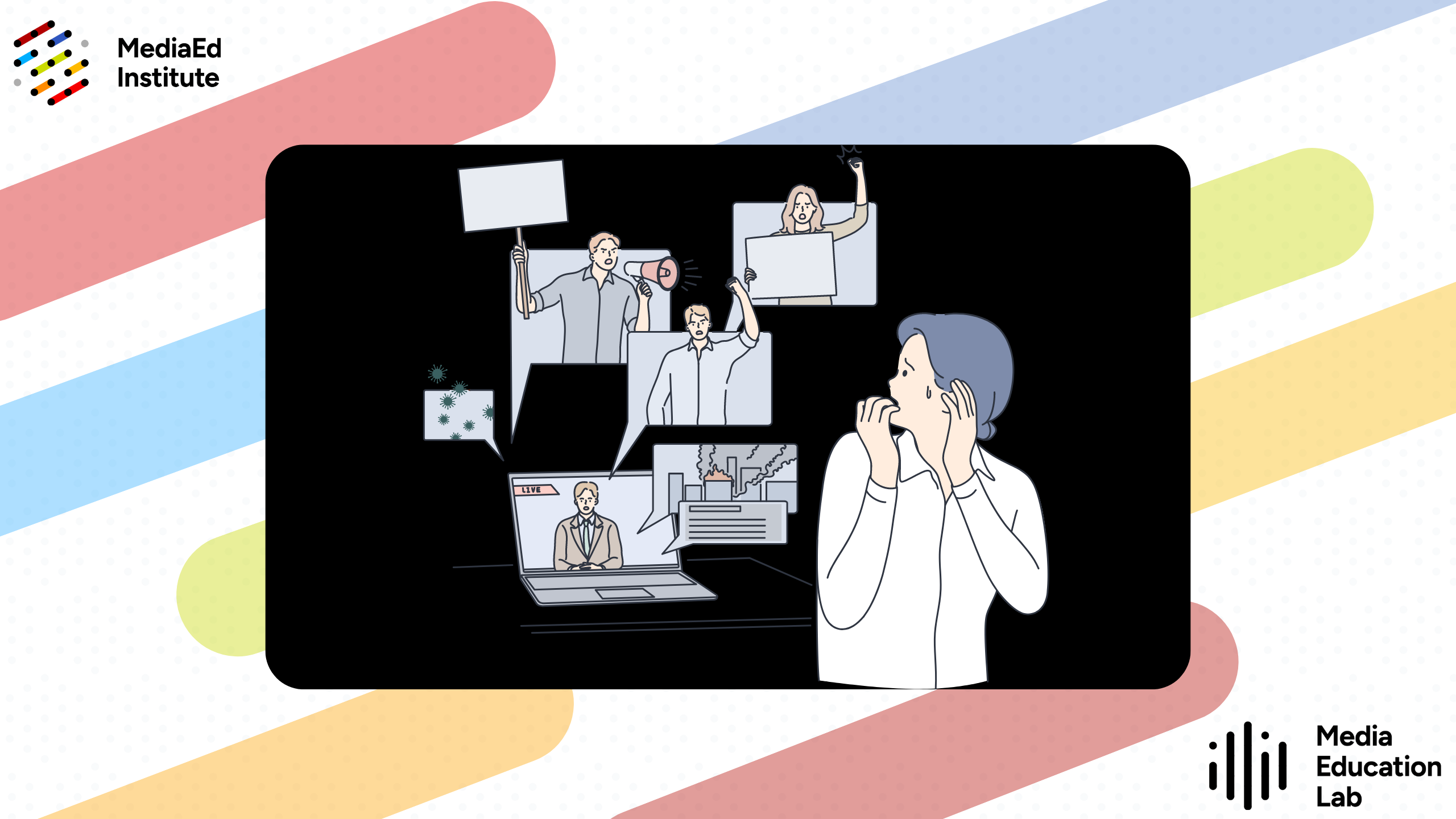
Perception, Fear, and Media: Roots of Polarization
Perception, Fear, and Media: Roots of PolarizationA 2-Week Deep Dive Micro-Credential Course for Emerging and Established LeadersBuilding upon the success of the February's MediaEd Institute, we are thrilled to offer a new online professional learning experience for educators who want to advance their…
Read More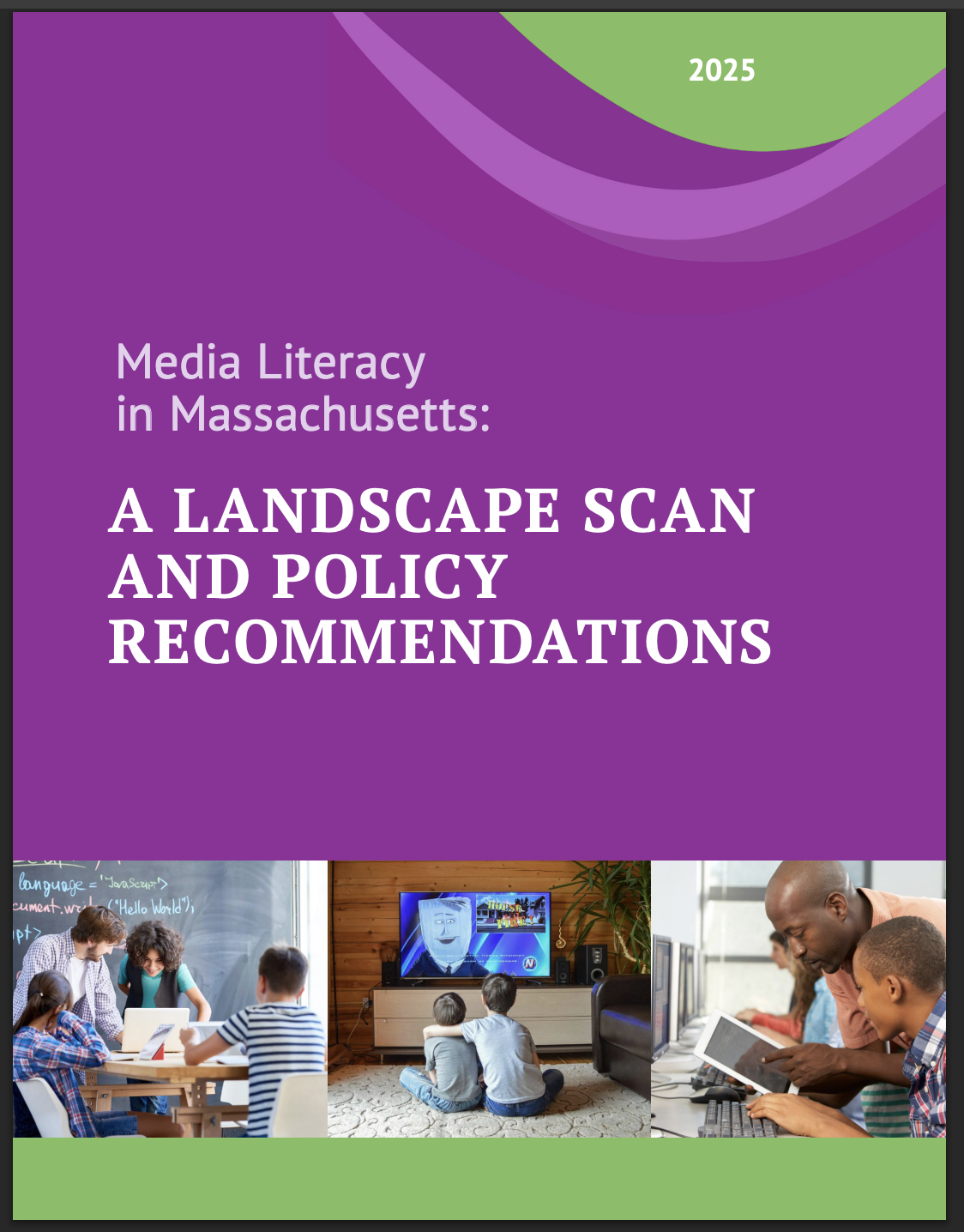
Media Literacy in Massachusetts: A Landscape Scan
The first-ever major statewide initiative to document the scope of media literacy education in American public schoolsClick here to read the report To better understand the status, challenges, and opportunities for advancing media literacy education…
Read More
Media Literacy in Action, 2nd edition 2025
The blurring of entertainment, information, and persuasion is reshaping work, life, and citizenship. As a result, our relationship to media has never been so important nor so complex. By asking critical questions about what they watch, listen to, read, and use, students can be better prepared to be responsible communicators who can use a variety of formats and genres for self-expression and…
Read More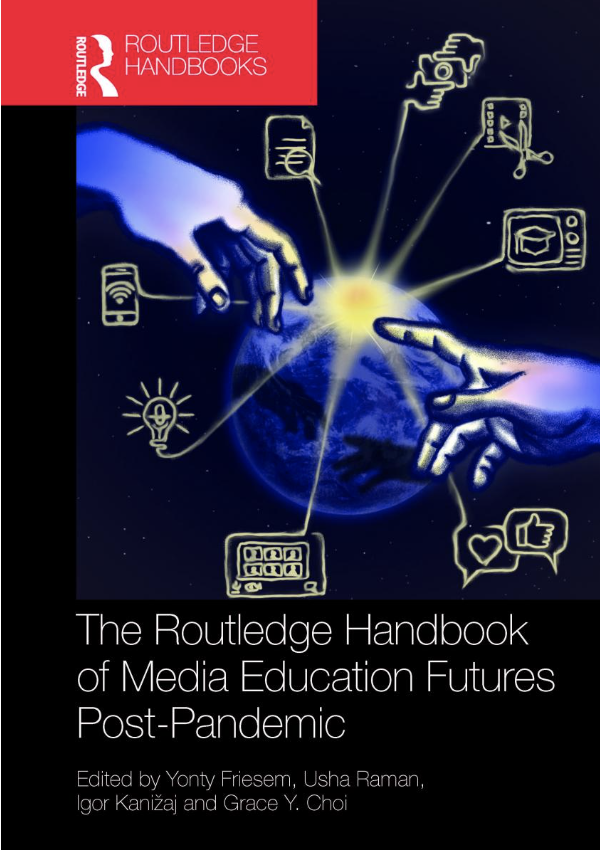
The Routledge Handbook of Media Education Futures Post-Pandemic.
Our team from the Media Education Lab is proud to announce the publication of The Routledge Handbook of Media Education Futures Post-Pandemic.This handbook showcases how educators and practitioners around the world adapted their routine media…
Read More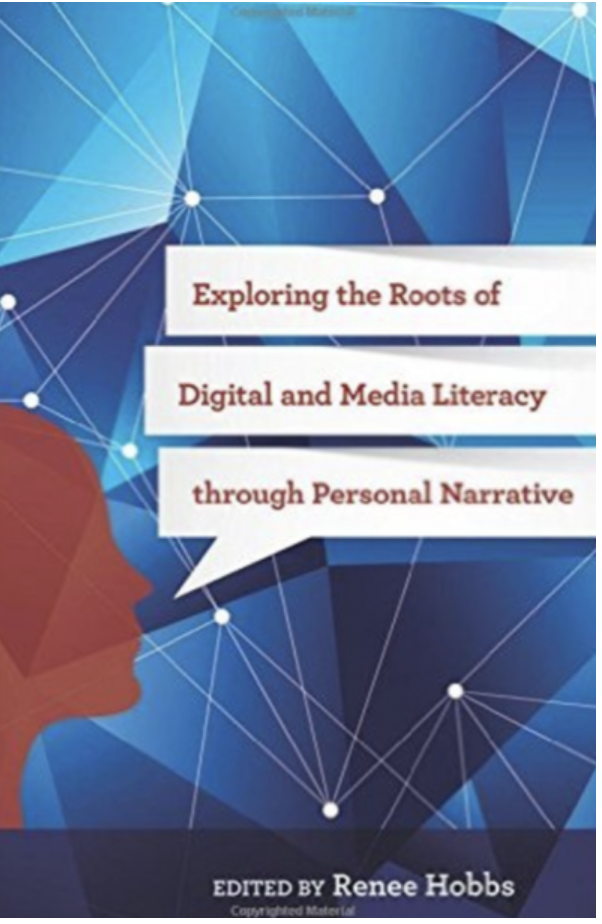
Exploring the Roots of Digital and Media Literacy through Personal Narrative
Explore the multidisciplinary nature of media literacy education It's been said that the lack of scholarship about the history of media literacy has been a source of some of the conflicts and debates among scholars and practitioners. Media literacy stands at the intersection of the fields of media studies and education, and these scholars have divergent perspectives on the past, present and…
Read More
Your Turn to Talk
Now you can participate in online dialogue with people from across the country and around the world with "Your Turn to Talk," a digital interactive learning experience made especially for Renee Hobbs' book, Media Literacy in Action, 2nd edtion. CLICK HERE…
Read More
Teachers Guide, Media Literacy in Action
This Teacher’s Guide will help you get the most out of the new textbook by Renee Hobbs, as it offers practical guidance on using this textbook in the classroom. Whether you are an experienced teacher or teaching media literacy for the first time, this guide…
Read More
Set Your Motivation
The Digital Learning Horoscope is a 48-item Likert scale instrument that assesses teachers’ perception of the value and relevance of six conceptual themes, namely: attitudes toward technology tools, genres and formats; message content and quality; community connectedness; texts and audiences; media systems; and learner-centered focus. …
Read More
Internet: Indispensable or Evil?
OverviewIn these four lessons, students use the episode Adam Ruins the Internet (Season 2, Episode 12) as a starting point to discuss the role of the Internet in modern culture and learn about media policies that shape people’s online…
Read More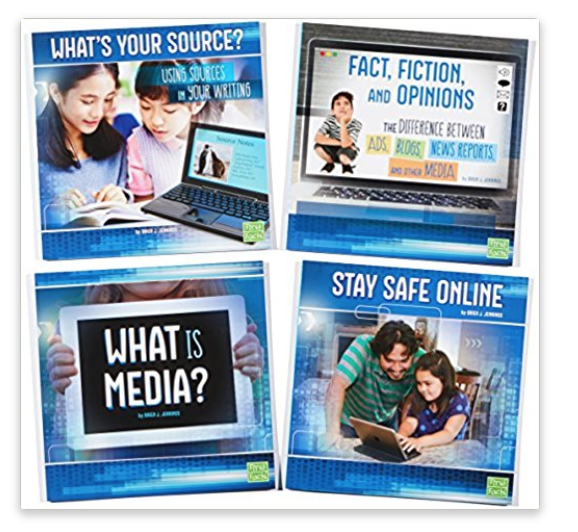
All About Media
It's never too early to be smart about media!Give emerging readers the tools to learn about media, evaluate it, and understand it. Readers will learn essential critical thinking concepts along with important topics such as understanding how to find sources and how to properly source, privacy and Internet safety, evaluating ads and news reports, and determining the differences between facts,…
Read More